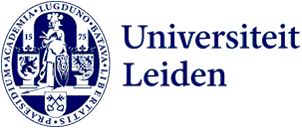
Open and free peer review? Here's how
Are you looking for a free and transparent way to submit your scientific articles for peer review? Then look no further than Peer Community In (PCI). This platform, which is supported by Leiden University, is a good alternative to publication in traditional peer-reviewed journals.
What exactly is PCI?
Peer Community In is a non-profit organisation that is supported worldwide by 150 universities and research institutions and consists of thematic communities of researchers. The platform offers free peer review, recommendation and open-access publication of scientific articles. The process is comparable with ‘regular’ scientific journals, but with two important differences: articles are deposited on a preprint server before peer review and, if the peer review leads to them being recommended, all the aspects of the editorial process are published on the PCI site. The platform therefore offers a very transparent model for reviewing and publishing articles.
How does it work?
The first step is to upload a preprint to a preprint server and to deposit the data, scripts and code in an open repository. You can then submit your preprint to the related thematic PCI. If one of the editors is interested in your preprint, they will invite researchers from the same field to review it. If the editor decides to recommend the preprint, it is publicly recommended. The review and a recommendation text signed by the editor are published on the PCI platform. The last and optional step is publication in a Peer Community Journal or in one of more than a hundred PCI-friendly journals.
If there is no peer community for your discipline, you can submit a proposal to the PCI board to start a new one.
In which disciplines is PCI active?
There are currently more than 15 active Peer Communities in areas such as evolutionary biology, ecology, neuroscience and archaeology. Any researcher can submit scientific articles or volunteer as a peer reviewer within one of the PCIs.
Why is Leiden University supporting PCI?
Open Science is essential to achieving a greater scientific and societal impact. Through Academia in Motion – our university-wide Open Science and Recognition & Rewards programme − we are working to make university research, and where possible the underlying data, openly available. PCI’s work aligns closely with our Open Science vision by offering a publication model that is not only open and transparent but also free to all. As a university, we therefore encourage the use of this platform as one of the alternatives to publications in traditional peer-reviewed journals.
Open Science Ambassador Ludo Waltman agrees, ‘As researchers it is our moral duty to share the knowledge we produce as widely as possible. New scientific publishing methods, such as PCI, play a crucial role in this.’
Next steps
Information sessions will be held later this year to help researchers get started with PCI. More details will follow. Sign up for the AiM newsletter to stay in the loop.
We are also moving toward a more open publishing policy at our university. An AiM open academic publishing think tank is working on a proposal. One aspect of this is better recognition and reward of open publishing, including PCI − and preprints in general. We are going to explore the options for achieving this in the coming period, for instance with regard to the dissertation requirements and support from the university library and faculties. Feel free to share any ideas and suggestions with the AiM team at academiainmotion@bb.leidenuniv.nl.
Academia in Motion at Leiden University
Want to find out more about how we are working to create an open workplace where we recognise and reward everyone’s contributions? And do you find it important that the university develops more knowledge and shares this with society? Take a look at the Academia in Motion website or sign up for our newsletter.
